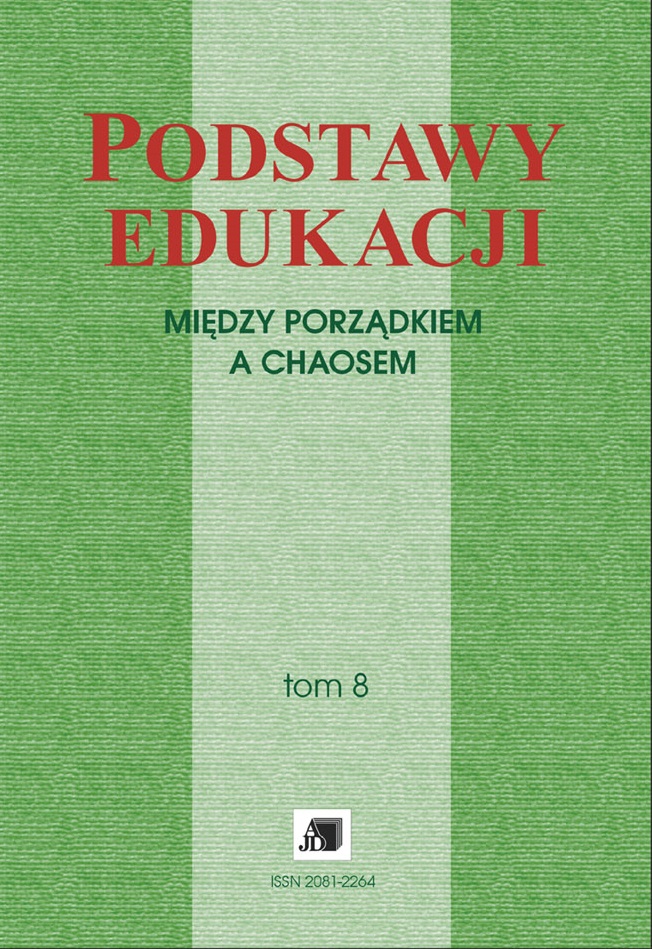Alegoria w powieściach W. Goldinga jako perspektywa rozwoju etycznego według E. Honinga
Allegory and irony in the novels of William Golding as the perspective of ethical development according to E. Honing and L.L. Dickson
Author(s): Małgorzata MuszyńskaSubject(s): Social Sciences, Language and Literature Studies, Psychology, Theory of Literature
Published by: Uniwersytet Jana Długosza w Częstochowie
Keywords: allegory; irony; binocular vision; cognitive epistemology; sublimation; duality; good analytic
Summary/Abstract: The author attempts to describe the inspiration that comes from several concepts of various authorswho are literary critics (E. Honing, L.L. Dickson), the researchers studying metaphors(P. Crisp) and studying creativity (G. Rose) and psychoanalysts who indicate educational gains,resulting from a “good analytic hour” in which the “binocular vision” occurs, coming from the allegorical“cognitive epistemology” and leading to sublimation conceived as a higher state of understandingof itself and the reality (H. Loewald, J. Miller).Among the many concepts of allegories presented earlier in her book “Allegories in aestheticspaces of pedagogy. Duality in expositions of the ironic allegorist – qualitativeresearch” shechooses, for the purpose of this article only a single one. It is the concept of thinking about allegoricalinterpretation of works of William Golding.
Journal: Podstawy Edukacji
- Issue Year: 2015
- Issue No: 8
- Page Range: 61-71
- Page Count: 11
- Language: Polish

